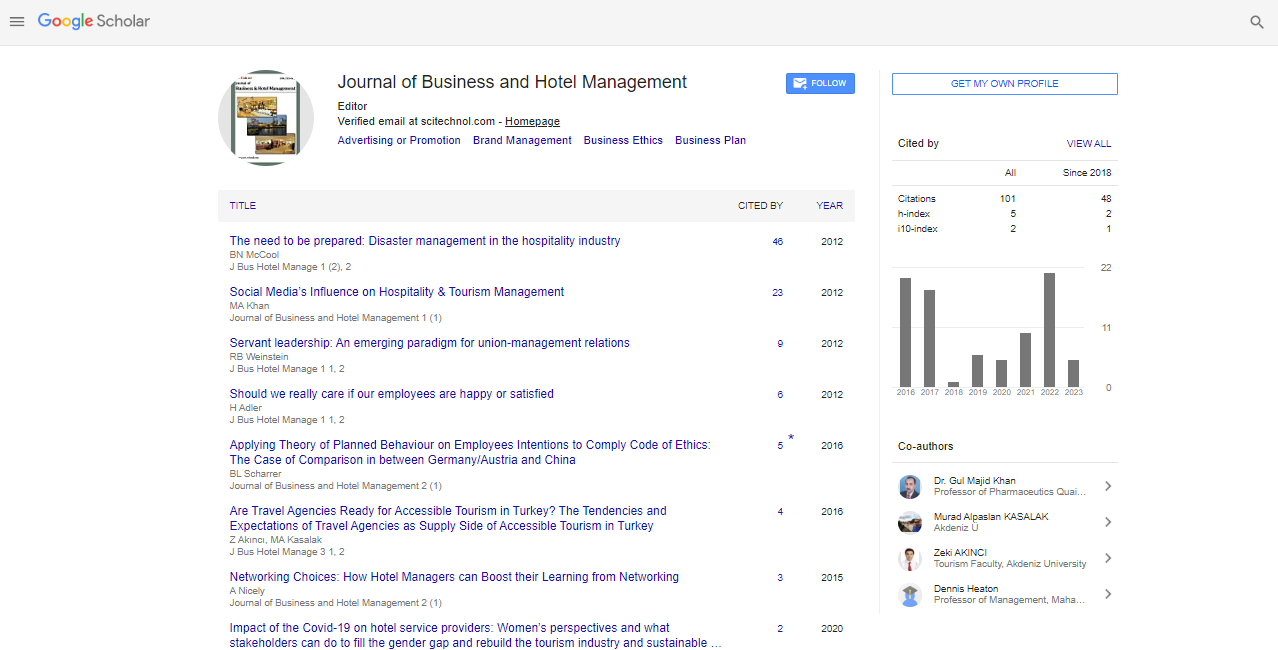Perspective, J Bhm Vol: 9 Issue: 2
Vendor Management: Streamlining Affiliation for Business Success
Xusen Cheng*
Department of Business Management and Economic History, University of Laguna, Laguna, Spain
*Corresponding Author: Xusen Cheng
Department of Business Management
and Economic History, University of Laguna, Laguna, Spain
E-mail: chengsen@gmail.com
Received date: 15 May, 2023, Manuscript No. JBHM-23-107990;
Editor assigned date: 17 May, 2023, PreQC No. JBHM-23-107990 (PQ);
Reviewed date: 31 May, 2023, QC No. JBHM-23-107990;
Revised date: 08 June, 2023, Manuscript No. JBHM-23-107990 (R);
Published date: 16 June, 2023, DOI: 10.4172/2324-9129.1000138
Citation: Cheng X (2023) Vendor Management: Streamlining Affiliation for Business Success. J BHM 9:2.
Description
In the fast-paced and interconnected world of modern business, maintaining productive and efficient relationships with vendors has become paramount for sustainable success. Vendor management plays a vital role in ensuring that businesses can access the goods and services they need while optimizing costs, quality, and reliability. This article will explore the importance of vendor management and the strategies to streamline vendor relationships for enhanced business performance.
Understanding vendor management
Vendor management refers to the process of overseeing all interactions and transactions between a company and its suppliers or service providers. These vendors can range from material suppliers to software vendors, consultants, or even third-party service providers. Effective vendor management involves various stages, including vendor selection, contract negotiation, performance evaluation, issue resolution, and contract renewal.
The importance of streamlining vendor relationships
Efficient vendor management can bring numerous benefits to a business, including:
Cost optimization: By developing strong relationships with vendors, businesses can negotiate better pricing and contract terms, reducing overall procurement costs.
Quality assurance: Streamlined vendor relationships can lead to a better understanding of product or service quality, ensuring that the company receives top-notch offerings.
Risk mitigation: A well-managed vendor network can help diversify risks and prevent over-reliance on a single supplier, safeguarding against potential disruptions in the supply chain.
Innovation and competitiveness: Collaborative vendor relationships can facilitate access to cutting-edge technologies and expertise, giving businesses a competitive edge.
Time savings: Effective vendor management allows businesses to focus on their core competencies while trusting vendors to deliver as promised.
Strategies for streamlining vendor relationships
Vendor selection: The foundation of successful vendor management lies in selecting the right vendors. Businesses should evaluate potential vendors based on their track record, reputation, financial stability, and alignment with the company's values and objectives.
Transparent communication: Open and transparent communication is vital for fostering strong relationships. Businesses should clearly communicate their expectations and requirements while encouraging vendors to provide feedback and suggestions.
Service Level Agreements (SLAs): Implementing SLAs helps set clear expectations for both parties, including deliverables, timelines, and performance metrics. Regularly monitoring SLA compliance ensures vendors meet their commitments.
Performance evaluation: Periodic assessments of vendor performance allow businesses to identify strengths, weaknesses, and areas for improvement. Constructive feedback helps vendors enhance their offerings and service quality.
Issue resolution: Promptly addressing any issues or disputes that arise is essential for maintaining a healthy vendor relationship. Openly discussing problems and finding mutually beneficial solutions is essential.
Contract management: Having well-drafted contracts with vendors that outline terms and conditions, responsibilities, and termination clauses provides a solid legal framework for the relationship.
Relationship building: Establishing personal connections with key vendor representatives can strengthen the partnership and foster mutual trust.
Technology integration: Leveraging vendor management software or Enterprise Resource Planning (ERP) systems can streamline communication, performance tracking, and procurement processes.
Conclusion
Vendor management plays a precarious role in shaping a company's success in today's competitive business landscape. By streamlining vendor relationships through effective communication, performance evaluation, and transparent processes, businesses can optimize costs, enhance product quality, and ensure a stable supply chain. Embracing vendor management as a strategic asset will enable companies to build strong, sustainable partnerships with their vendors and stay ahead in the ever-changing market.
